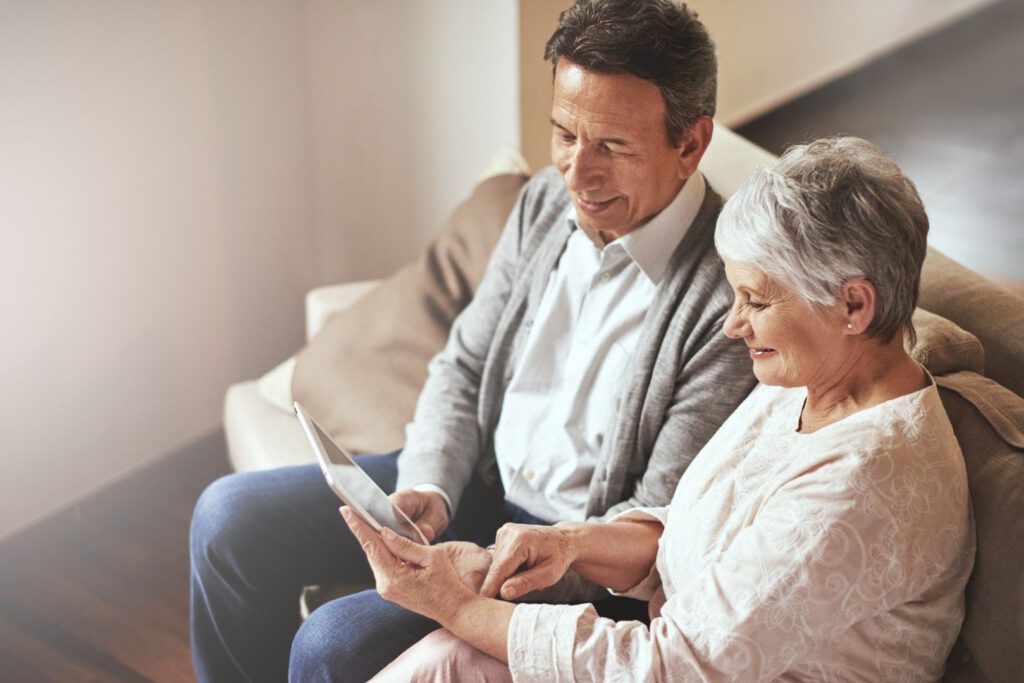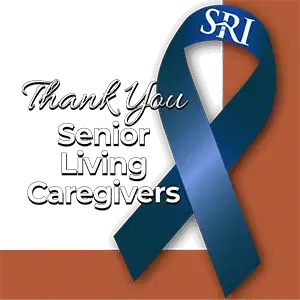Posted in: Lifestyle
You probably know someone in your life who struggles with using technology and perhaps navigating the internet. This person could even be you.
However, if we learned anything through the pandemic, we’ve seen how important technology can be in our daily lives—from FaceTiming relatives and attending job meetings or classes over Zoom to paying bills online and using our phones to make medical appointments.
Tech education is improving — but still falling short
Note: This article was written by Alyssa Hui and originally appeared on SeniorsMatter.com.
Yet, while the country is moving toward a more digitally connected world, not everyone can keep up.
“The pandemic has revealed older adults who don’t have a way of using the internet to stay in touch with people could become more isolated from both information – like being able to sign up for a vaccination appointment – or from people in their lives,” said Amy VanDeVelde, the technology education director at Oasis Connections, an organization working to enhance the quality of life for older adults.
According to a Pew Research Center study, while more adults ages 65 and older are owning smartphones and using the internet, many of them remain largely disconnected from the digital world.
The study found 34% of older internet users say they have little to no confidence in their ability to use electronic devices to perform online tasks, and 48% of seniors say when they get a new electronic device, they usually need someone else to set it up or show them how to use it.
However, VanDeVelde said in recent years more organizations nationally and locally have stepped up to help seniors attain tech skills.
What’s being done to help seniors become more tech-savvy?
It’s not that seniors are technology-averse, according to a Pew Research Center study and a survey by Amica Senior Lifestyles. But they may need more resources and support to help them overcome barriers to technology.
In the last few years, organizations – including Aging Connected, Older Adults Technology Services (OATS), Senior Planet from AARP, and Oasis Connections – have brought low-cost internet options, courses and training programs to help seniors learn tech skills and provide social support.
VanDeVelde said that Oasis Connections offers basic internet and computer courses, along with cybersecurity training to seniors virtually and in person at certain locations.
“When seniors take technology classes, they usually gain confidence with how to use their device or a specific app,” she said. “People learn to navigate the web, use apps and devices, locate evidence-based health information, email, text, chat, connect to public Wi-Fi safely, and avoid internet-based scams and frauds.”
Impacts of tech education on seniors
When seniors participate in technology courses and training, they learn basic skills that can be incorporated into their day-to-day lives—plus, they stay connected to people and activities.
The Pew Research Center supports this and found that 71% of people 65 and older went online/used the internet almost every day after joining the online world, while 11% of those users went on three to five times per week.
However, seniors who never learn basic technology skills or socially connect with others using tech devices can be more susceptible to isolation and feelings of loneliness. Research indicates social isolation can be just as harmful to a person’s health as smoking 15 cigarettes a day.
“There are lots of older adults who have no ability to get an internet connection in their home, and so we worry they will be more isolated from people, information and activities,” said VanDeVelde. “What most people don’t realize is the terrible effects feeling lonely and isolated can have on a person’s health.”
In addition, seniors who don’t have basic technology skills can be vulnerable to scams and fraud.
“Sadly, scams look more and more realistic and legitimate, so it’s going to be hard to sort that out without that education, more classes, or a helpful person in their lives to help them navigate that,” she explained. “If an older adult is taken by a scammer, the risk to their health is the feelings of stress, anxiety and shame.”
What still needs to be done
Societal changes still need to take place to boost the number of seniors who still do not have internet access or basic technology training.
VanDeVelde believes federal funding needs to be prioritized to help people get broadband internet access, and funding needs to be designated for additional training courses.
“There are 22 million older adults who don’t have any internet access,” she said. “We have to make sure that in all of this federal funding that the government is providing for after the pandemic to help people benefit from home internet, to make sure there are easy ways for older adults to get low-cost internet when they need it, and that they have access to a national training program.
If you or your loved one is looking for a community offering Independent Living, Assisted Living, or Memory Care in Gulf Breeze, Florida call us at (843) 865-2247 to get more details on how a senior living community like ours might just be a perfect fit.





for
special events
and offers